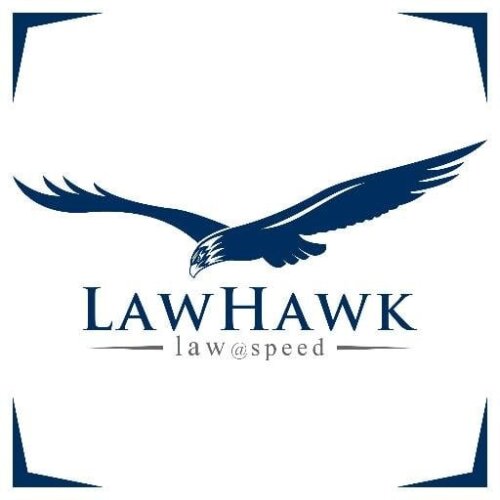Best Media and Entertainment Lawyers in New Zealand
Share your needs with us, get contacted by law firms.
Free. Takes 2 min.
Or refine your search by selecting a city:
List of the best lawyers in New Zealand
About Media and Entertainment Law in New Zealand:
Media and Entertainment Law in New Zealand encompasses various legal issues related to the creation, distribution, and exploitation of media content. This includes television, film, music, publishing, advertising, and more. The industry is regulated by a combination of legislation, regulations, and case law.
Why You May Need a Lawyer:
There are many situations where individuals or companies may require legal assistance in the field of Media and Entertainment. This can include contract negotiation, copyright infringement, defamation claims, intellectual property disputes, licensing agreements, and more. A lawyer can help navigate the complex legal landscape and protect your rights.
Local Laws Overview:
In New Zealand, Media and Entertainment Law is governed by a combination of statutes, regulations, and case law. Some key aspects of local laws that are particularly relevant to Media and Entertainment include the Copyright Act 1994, the Films, Videos, and Publications Classification Act 1993, and the Harmful Digital Communications Act 2015. It is important to understand and comply with these laws to avoid legal issues.
Frequently Asked Questions:
1. What is copyright and how does it apply to Media and Entertainment?
Copyright is a form of legal protection that grants exclusive rights to the creators of original works. In the context of Media and Entertainment, copyright can apply to works such as music, films, books, and software. It gives the creator the right to control how their work is used and reproduced.
2. What is defamation and how does it apply to Media and Entertainment?
Defamation occurs when someone publishes false and harmful statements about another person that damages their reputation. In the Media and Entertainment industry, defamation can arise in the form of libel (written) or slander (spoken) statements. It is important to be aware of defamation laws to avoid legal action.
3. What are the key considerations when negotiating a contract in Media and Entertainment?
When negotiating a contract in Media and Entertainment, it is important to clearly define the terms of the agreement, including the scope of work, payment terms, intellectual property rights, exclusivity clauses, and termination clauses. A lawyer can help review and negotiate contracts to protect your interests.
4. How can I protect my intellectual property in the Media and Entertainment industry?
There are various ways to protect your intellectual property in the Media and Entertainment industry, including registering copyrights, trademarks, and patents. It is also important to use contracts and licensing agreements to establish ownership and usage rights for your creations.
5. What are the legal requirements for advertising in New Zealand?
Advertising in New Zealand is regulated by the Advertising Standards Authority (ASA) and must comply with the ASA Codes of Practice, which set out guidelines for truthful, honest, and fair advertising. It is important to ensure your advertising practices are compliant with these regulations to avoid legal issues.
6. What is the process for obtaining film classification in New Zealand?
Films, videos, and publications in New Zealand are classified by the Office of Film and Literature Classification (OFLC) to determine their suitability for different age groups. The classification process involves submitting an application and paying a fee, after which the OFLC will review the content and assign a classification rating.
7. How can I respond to a copyright infringement claim in Media and Entertainment?
If you receive a copyright infringement claim in the Media and Entertainment industry, it is important to seek legal advice. Your lawyer can help assess the validity of the claim, negotiate a resolution, or defend against the allegation in court if necessary.
8. What are the potential legal consequences of not complying with privacy laws in Media and Entertainment?
Failure to comply with privacy laws in the Media and Entertainment industry can result in legal action, fines, and reputational damage. It is important to understand and adhere to privacy regulations, such as the Privacy Act 2020, to protect the personal information of individuals and avoid legal liability.
9. How can I resolve a dispute with a business partner or collaborator in Media and Entertainment?
If you encounter a dispute with a business partner or collaborator in the Media and Entertainment industry, it is advisable to seek legal advice. A lawyer can help mediate the dispute, negotiate a settlement, or represent your interests in court if necessary to reach a resolution.
10. What are the legal implications of using social media for promotional purposes in New Zealand?
Using social media for promotional purposes in New Zealand is subject to the Fair Trading Act 1986 and the Advertising Standards Authority Codes of Practice. It is important to ensure that your marketing practices on social media are transparent, truthful, and comply with relevant laws and guidelines to avoid legal issues.
Additional Resources:
If you require legal advice or assistance in the field of Media and Entertainment in New Zealand, you may consider contacting the New Zealand Law Society, the Intellectual Property Office of New Zealand, or the Entertainment Law Committee of the New Zealand Bar Association. These organizations can provide valuable resources and referrals to experienced lawyers in the industry.
Next Steps:
If you find yourself in need of legal assistance in Media and Entertainment in New Zealand, it is recommended to consult with a qualified lawyer who specializes in this area of law. They can provide personalized advice and guidance to help protect your interests and navigate the legal complexities of the industry. Don't hesitate to reach out for help when needed.
Lawzana helps you find the best lawyers and law firms in New Zealand through a curated and pre-screened list of qualified legal professionals. Our platform offers rankings and detailed profiles of attorneys and law firms, allowing you to compare based on practice areas, including Media and Entertainment, experience, and client feedback.
Each profile includes a description of the firm's areas of practice, client reviews, team members and partners, year of establishment, spoken languages, office locations, contact information, social media presence, and any published articles or resources. Most firms on our platform speak English and are experienced in both local and international legal matters.
Get a quote from top-rated law firms in New Zealand — quickly, securely, and without unnecessary hassle.
Disclaimer:
The information provided on this page is for general informational purposes only and does not constitute legal advice. While we strive to ensure the accuracy and relevance of the content, legal information may change over time, and interpretations of the law can vary. You should always consult with a qualified legal professional for advice specific to your situation.
We disclaim all liability for actions taken or not taken based on the content of this page. If you believe any information is incorrect or outdated, please contact us, and we will review and update it where appropriate.
Browse media and entertainment law firms by city in New Zealand
Refine your search by selecting a city.









